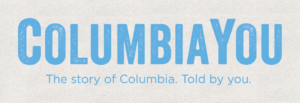TO: M.S. Students completing the Master’s Project this summer
FROM: Sheila Coronel, Dean of Academic Affairs
RE: Instructions on Submitting Your M.S. Master’s Projects
The deadline for submitting your finished Master’s Project is Friday, September 1, at 10 a.m.
We will begin accepting completed projects as of Monday, August 21.
All projects must be submitted to Chanel Roche and Evelyn Corchado in 207A.
You will be required to sign your name on the Master’s Project submission log when you turn in your final project. Only those students who received a formal extension from your faculty adviser and the Dean of Students Office have permission to miss this deadline.
There are multiple sections of the submission instructions. The portion marked General Instructions applies to all students. There are also sections with specific additional instructions for Hybrid/Video, Hybrid/Photo and Audio projects.
All Master’s Projects must be submitted to the Assessment System!
General Instructions:
Please submit your piece (and any other materials as specified by your type of project) in a 9 by 12-inch envelope (which can be purchased at the bookstore or across the street at the stationery shop). Label the envelope with your name, your class year, the title of your project and the name of your Master’s Project adviser. These copies will be turned over to the library.
Please submit the final version of your project to your adviser(s) via email or hard copy as stipulated by the adviser (Additional instructions below for hybrid projects).
This final version of your project will be available in the Columbia Library, so it must conform to the specific formatting guidelines.
Formatting: Margins and Numbers: The print version must be double-spaced on one side of white paper, leaving a 1½- inch margin on the left-hand side and a 1-inch margin on all other sides. Pages must be numbered. No binding or staples, please.
Title Page: Include a separate title page with the following information: Your name, class year, the title of your project, the name of your master’s adviser, and, at the bottom of the page in the center, add:
Copyright
Susie JSchooler (name of student)
2017
Source List: Submit a complete source list for your project at the end of your project. If you are not certain about the best way to cite a source, consult with your adviser. Be aware that source lists and your entire project, including the “P.S.” portion, will be available for reading and copying by all Journalism School library visitors. If you have confidentiality concerns about sources (i.e. names, phone numbers, personal addresses, etc.), you are responsible for removing the source list from the copy submitted to the Dean of Students Office for the library.
Post Script: At the end of your project, include a first-person narrative describing how you discovered, researched and reported your story. This will help future students see what goes into the making of a successful master’s project. This “P.S.” should be included with all copies of your project after the source list, and should run no longer than 1,000 words. Remember that this post script will be available along with your project in the library.
Hybrid/Video Project Instructions
•One copy of your print piece per the instructions above to the Dean of Students Office.
•Please e-mail final copy of your project to your print and video advisers. Ask your print adviser if he or she wants a hard copy as well. Include Post Script and Source List as described above.
•One thumb drive of the video portion of your project.
•Provide a second thumb drive directly to your video adviser and a third to your print adviser. Label all your thumb drives and accompanying materials with complete project information (author(s), title, adviser). We suggest the video format to be an mp4 video file with an H.264 codec. It’s easy to export in Premiere and fits on most thumb drives.
Hybrid/Photo Project Instructions
•One copy of your print piece per the instructions above for print projects.
•Please e-mail one final copy of your project to your adviser. Ask your adviser if he or she also wants a hard copy. Include a Post Script and Source List as described above.
•One thumb drive of either your audio slideshow or jpgs. If your project includes both, please submit a separate thumb drive for each presentation.
•Provide a second thumb drive (s) directly to your adviser. Label all your thumb drives and accompanying materials with complete project information (author(s), title, adviser).
Audio Project Instructions
• One copy of your script formatted according to the Columbia Script Template for the Dean of Students Office, email a second to the adviser, plus a hard copy to the adviser if he/she requests it. Be sure the title includes _final. Include a Post Script and Source List as described above.
•One copy of your final project as a .wav file and an .mp3 file on a thumb drive for the Dean of Students Office, and a second for your adviser. Be sure to label your thumb drive on the outside with complete project information (author, title, advisor).
•Send your adviser a copy of the .wav file via dropbox or wetransfer. .
Audio/Print Hybrid Instructions
•One hard copy of your print piece per the instructions above for print projects plus a hard copy of your audio script, formatted to the Columbia Script Template. Please e-mail one final copy of your print piece and your audio script to your adviser.
•One thumb drive with your both a .wav file and a .mp3 version of your audio piece for Dean of Students Office, and a second for your adviser. Label all thumb drives on the outside with complete project information (author, title, adviser).
•Send with your adviser a copy of the final .wav file (either by dropbox or wetransfer)
Personal Copy: We strongly encourage you to keep a copy of your project for yourself. Neither the Journalism School nor the Journalism Library is able to provide on-demand copies of your work.
Congratulations!

